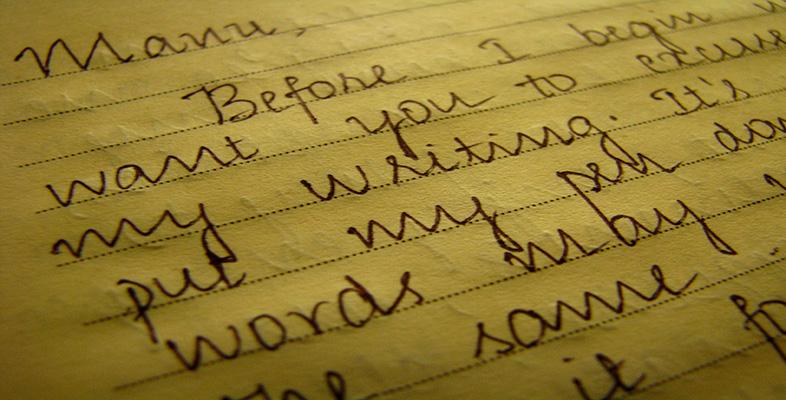2.3 Choosing your voice: exercise
Exercise 4
Imagine – and it may be true – that you feel strongly about a local planning issue, such as the erection of a piece of sculpture in a public place, or the building of a new road, out-of-town shopping centre or leisure facility. If you wanted to express your feelings in writing. you might need to choose different ‘voices’ – depending on the person you are writing to. To practise this now, draft three versions (150–200 words each) of what you might say in each of the following:
-
a letter or electronic mail message (email) to a friend
-
a letter to the local newspaper
-
a piece of written evidence to go before a judicial inquiry.
Discussion
In order to communicate best with each of these different audiences, you needed to select the appropriate ‘voice’. I hope you found that this depended on a careful choice of words.
-
In a personal communication to a friend, particularly if you are a regular letter-writer, you may have found you could just ‘write as you speak’, so you did not need to make conscious choices when selecting your words. The ‘voice’ that comes through will be informal and individual, and perhaps recognisably ‘you’. An email message often carries with it a greater sense of haste and immediacy than a letter, so in an email people often use a sparse, ‘clipped’ voice, which aims to communicate information in fewer words. rather like the style that used to be common when telegrams were the quickest way of sending messages. They were priced by the word, and punctuation cost extra. They were typically written in upper-case type. and you might consider whether or not the necessary economy of expression, and the upper-case letters, added a further dimension to the message – perhaps a sense of drama or urgency (‘HAVE GUN WILL TRAVEL’, or ‘SMALL EARTHQUAKE IN CHILE NOT MANY DEAD’).
-
In a letter to the local paper, unlike a communication with a friend, you could not rely on any shared knowledge – except perhaps the shared knowledge of the plans you were writing about. You could not assume that your reader shared your opinions. So you may have found that you spelled out more carefully what you felt about the proposals. You may have felt the need to use exaggeration in order to ensure no one missed your point. But your letter may still have been fairly informal.
-
I would expect that your voice when writing ‘evidence’ for a judicial inquiry would be more formal and sober than in either of the two previous pieces of writing. You may have found yourself using longer and less conversational words. You may have tried hard to avoid exaggeration this time, in order to avoid discrediting yourself as a witness. Your ‘voice’ here may not have sounded like you at all.
Consider which, if any, of these voices will be most appropriate for writing essays. You may conclude that you'll need to use elements of all three.
